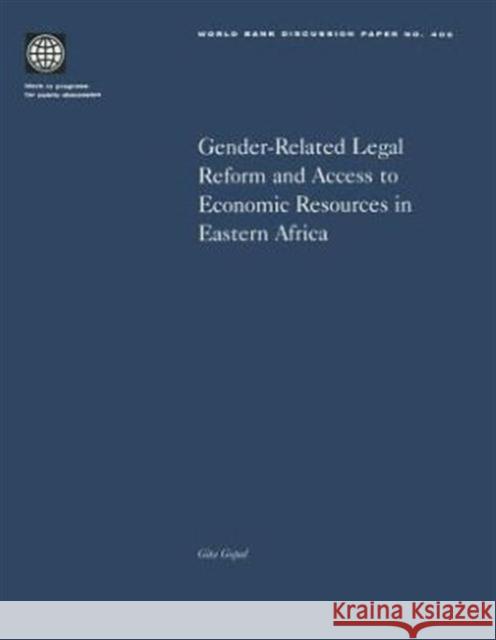Gender-Related Legal Reform and Access to Economic Resources in Eastern Africa » książka
Gender-Related Legal Reform and Access to Economic Resources in Eastern Africa
ISBN-13: 9780821345665 / Angielski / Miękka / 1999 / 45 str.
The impetus for change in African legal reform is coming primarily from African women themselves, as they respond to their personal and practical experiences with the law. Top-down imposition of norms has not worked; if legal reform is to lead to sustainable equity for women, the voices of these women must be heard. Given that previous efforts to ensure greater equity in personal laws have not been fully successful in eastern African countries, any new legal initiatives must not repeat the mistakes of the past. Law must not again remain merely on the books as a legitimizing tool that reinforces or supports gender discrimination, but must actively protect and guard the interests of both men and women. This paper attempts to draw out some possible lessons from past experience to inform new efforts at legal reform in these countries. It examines the laws related to allocation of economic resources within households in the broader historical, social, and cultural context in some of these countries, and examines the effectiveness of these laws in challenging gender relationships.











